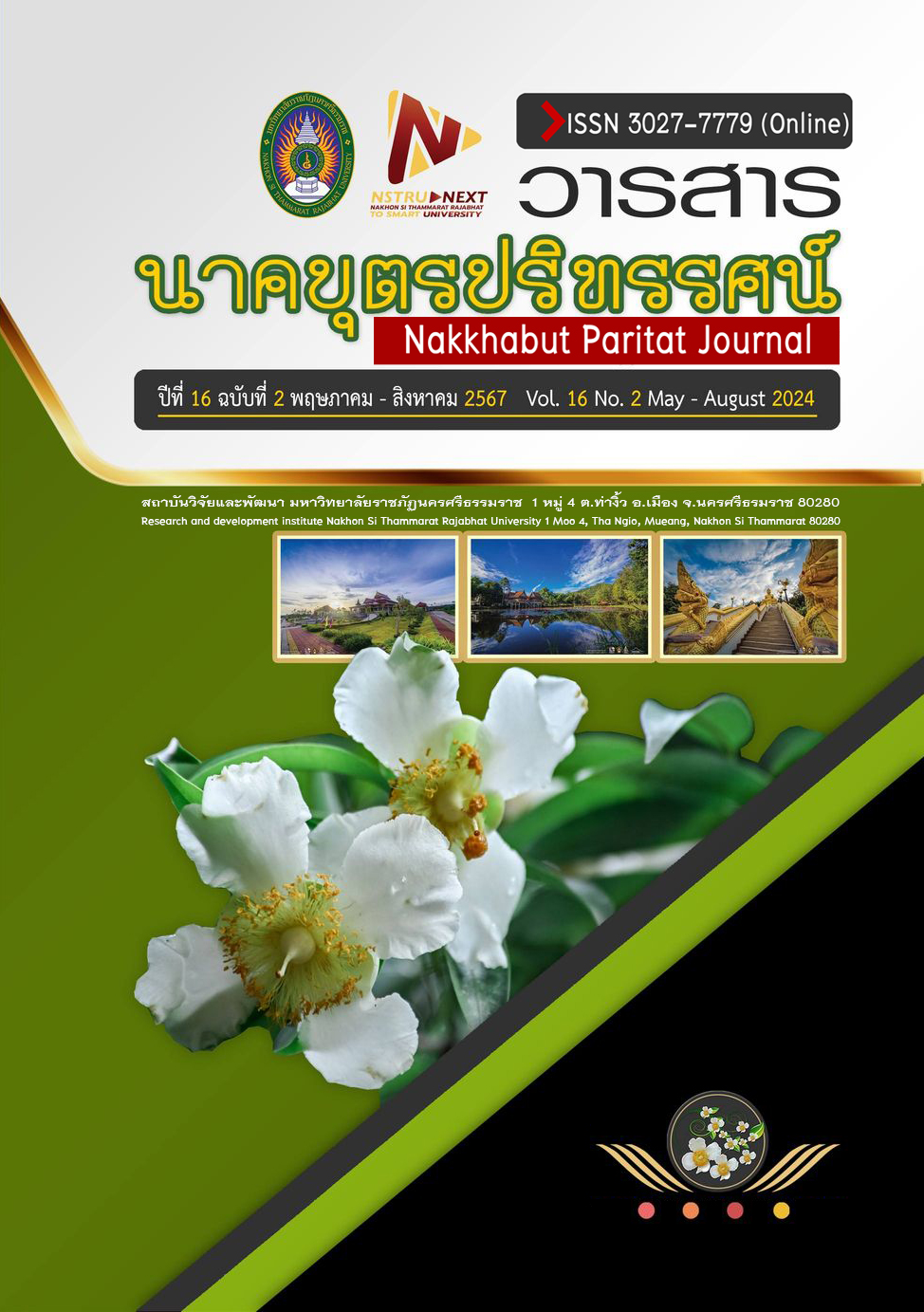ประสิทธิภาพการจัดการห่วงโซ่อุปทานของกิจกรรมดำน้ำตื้นในจังหวัดตรัง
Main Article Content
บทคัดย่อ
บทความวิจัยนี้เพื่อประเมินประสิทธิภาพการควบคุมดูแลของกิจกรรมต่างๆ ดำน้ำตื้นรายงานศูนย์วิจัยเชิงคุณภาพโดยนักข่าวผู้นำเที่ยวที่เกี่ยวข้องภายในระยะเวลาที่มีความสำคัญ 15 คนด้วยแบบสัมภาษณ์กึ่งโครงสร้างผลที่ พบกับประสบการณ์ที่พบ 1) ประสิทธิภาพการทำงานมีต้นทุนค่าใช้จ่ายของระบบการคำนวณปริมาณวัตถุดิบเพื่อให้มีกำไรเพิ่มมากขึ้น 2) ประสิทธิภาพการทำงานมีปัญหาการประสานงาน ตรวจสอบข้อเท็จจริงที่ละเอียดชัดเจนให้ ประเมินประสิทธิภาพและ 3) ประสิทธิภาพที่เห็นได้ชัดของประสิทธิภาพโดยรวมที่จำเป็นต้องมีรูปแบบการให้บริการที่มีการควบคุมดูแลภายในการควบคุมของกิจกรรมดำน้ำตื้นที่ทุกคนมีความเชื่อมโยง สาเหตุของความแตกต่างซึ่งผู้ประกอบการนำเที่ยวเกี่ยวข้องกับเรื่องนี้สามารถทราบข้อมูลได้การรักษาในประสบการณ์การรักษาประสิทธิภาพของกิจกรรมดำน้ำตื้นให้อย่างต่อเนื่อง
Article Details

อนุญาตภายใต้เงื่อนไข Creative Commons Attribution-NonCommercial-NoDerivatives 4.0 International License.
เอกสารอ้างอิง
Boonmee, J. (2022). Supply Chain Management Model of Snorkeling Tourism to Enhance Competitiveness in Trang Province. Doctor of Philosophy, Mahasarakham University. (in Thai)
Darmawan, B. A., Laili Maulida, R. A. & Nasito, M. (2021). Supply Chain Performance of SMEs:
The Role of Triple-A Strategy. KINERJA, 25(1), 91-102.
Folinas, S. & Metaxas, T. (2020). Tourism: The Great Patient of Coronavirus COVID-2019. Retrieved 2020, January 15, form https://www.researchgate.net/publication/340771406_ Tourism_The_ Great_Patient_of_Coronavirus_COVID-2019
Gonzalez-Torres, T., Rodríguez-Sanchez, J. L. & Pelechano-Barahona, E. (2021). Managing relationships in the Tourism Supply Chain to overcome epidemic outbreaks: The case of COVID-19 and the hospitality industry in Spain. International Journal of Hospitality Management, 92(2), 1-11.
Gopalakrishnan, B. N., Peters R. & Vanzetti D. (2020). COVID-19 and Tourism. Retrieved 2020, January 10, from https://unctad.org/en/pages/PublicationWebflyer.aspx?publicationid=2810
Hokta, D. Wongmonta, S. Techakanaet, J & Praditphonlert, N. (2017). Guidelines for developing tourism potential in Trang. Rajamangala University of Technology Srivijaya Research Journal, 9(2), 251-268. (in Thai)
Jena, S. K. and Meena, P. (2019). Price and Service Competition in a Tourism Supply Chain. Service Science, 11(4), 279-291.
Ministry of Tourism & Sports. (2563).Tourism Economic Review. Retrieved 2020, January 2, from
https://www.mots.go.th/download/TourismEconomicReport/4-1TourismEconomicVol4.pdf (in Thai)
Suhardi, B., Anisa, N & Widyo Laksono, P. (2019). Minimizing waste using lean manufacturing and ECRS principle in Indonesian furniture industry. Cogent Engineering, 6(1), 1-13.
Song, H. (2012). Tourism Supply Chain Management. New York, USA: Routledge.
The 1 st person. (2022). Interview, 26 January 2022. (in Thai)
________. (2022). Interview, 20 April 2022. (in Thai)
The 2 nd person. (2022). Interview, 26 January 2022. (in Thai)
________. (2022). Interview, 20 April 2022. (in Thai)
The 4 th person. (2022). Interview, 26 January 2022. (in Thai)
________. (2022). Interview, 20 April 2022. (in Thai)
The 4 th person. (2022). Interview, 26 January 2022. (in Thai)
________. (2022). Interview, 20 April 2022. (in Thai)
The 6 th person. (2022). Interview, 26 January 2022. (in Thai)
________. (2022). Interview, 20 April 2022. (in Thai)
The 12 th person. (2022). Interview, 26 January 2022. (in Thai)
________. (2022). Interview, 20 April 2022. (in Thai)
The 15 th person. (2022). Interview, 26 January 2022. (in Thai)
________. (2022). Interview, 20 April 2022. (in Thai)
Veres, C. (2020). Conceptual Model for Introducing Lean Management Instruments. Procedia Manufacturing, 46(1), 233-237.


